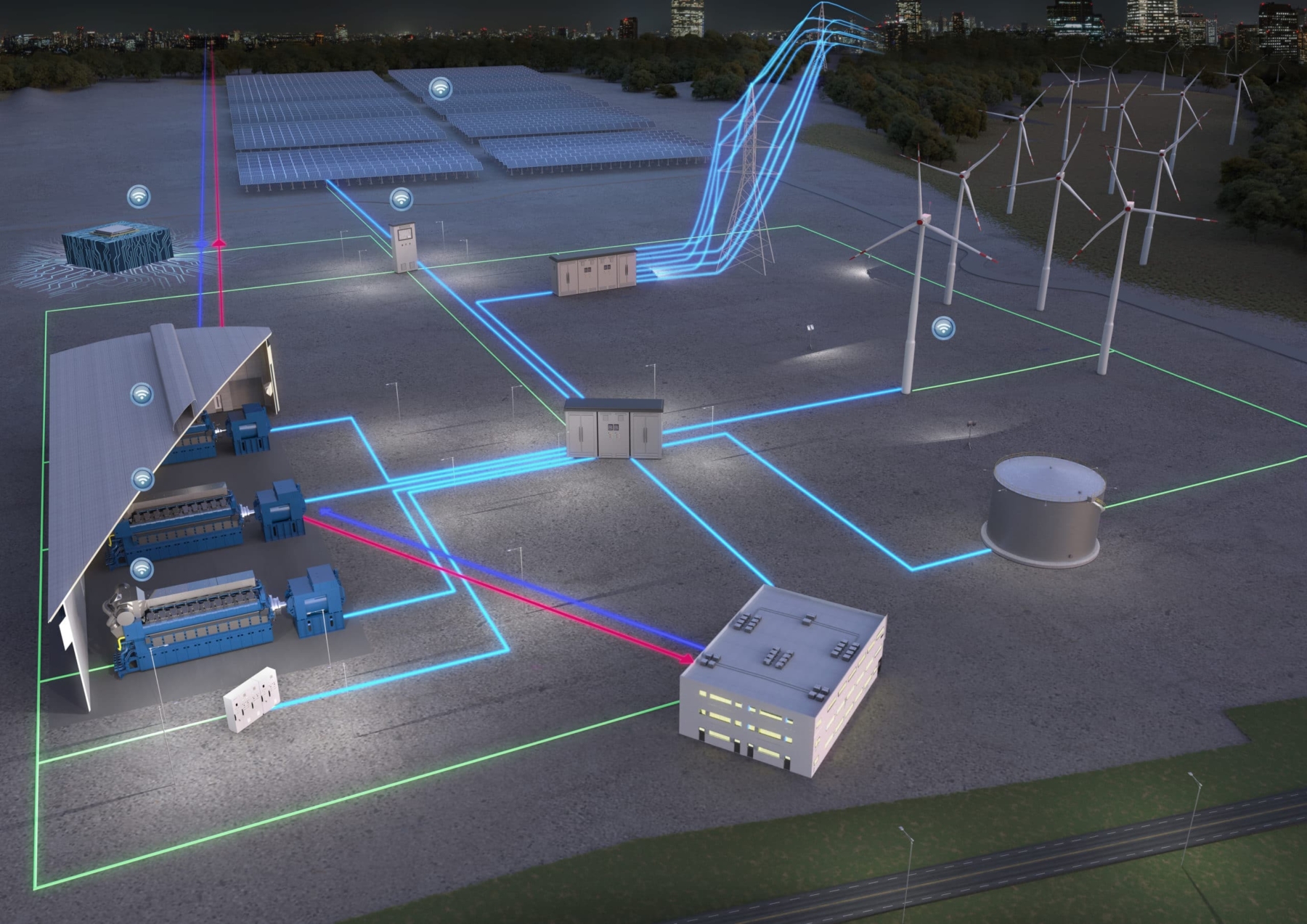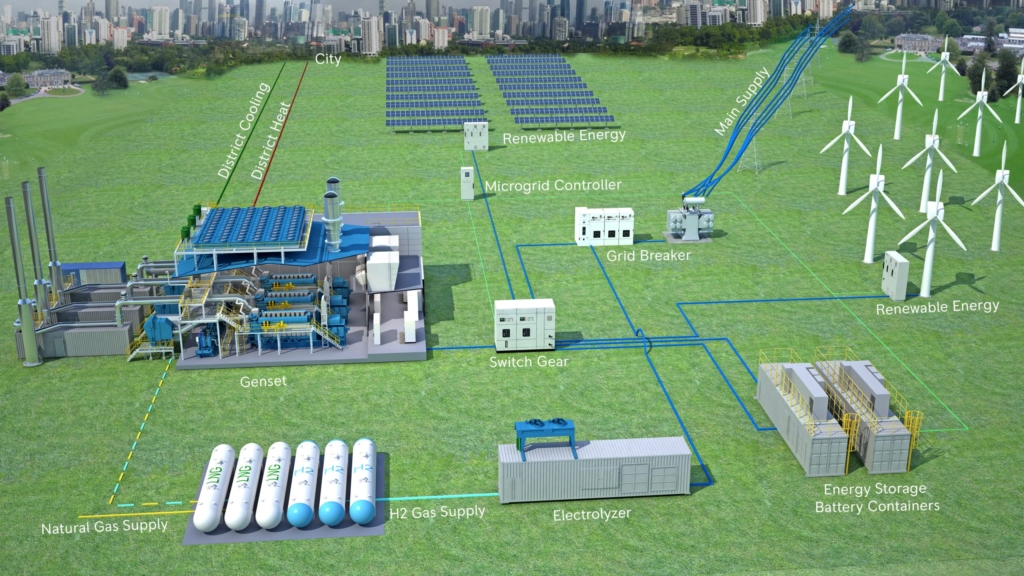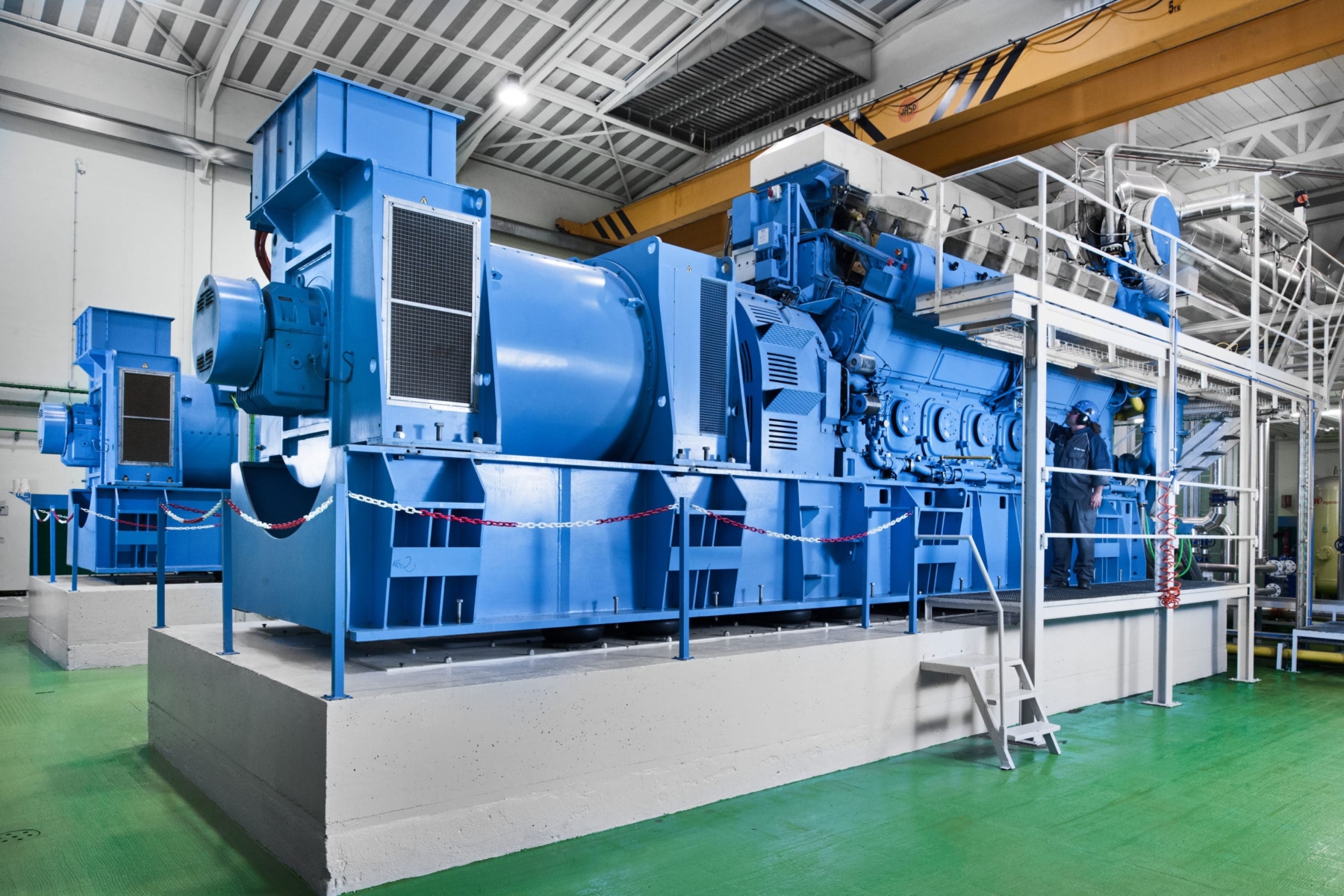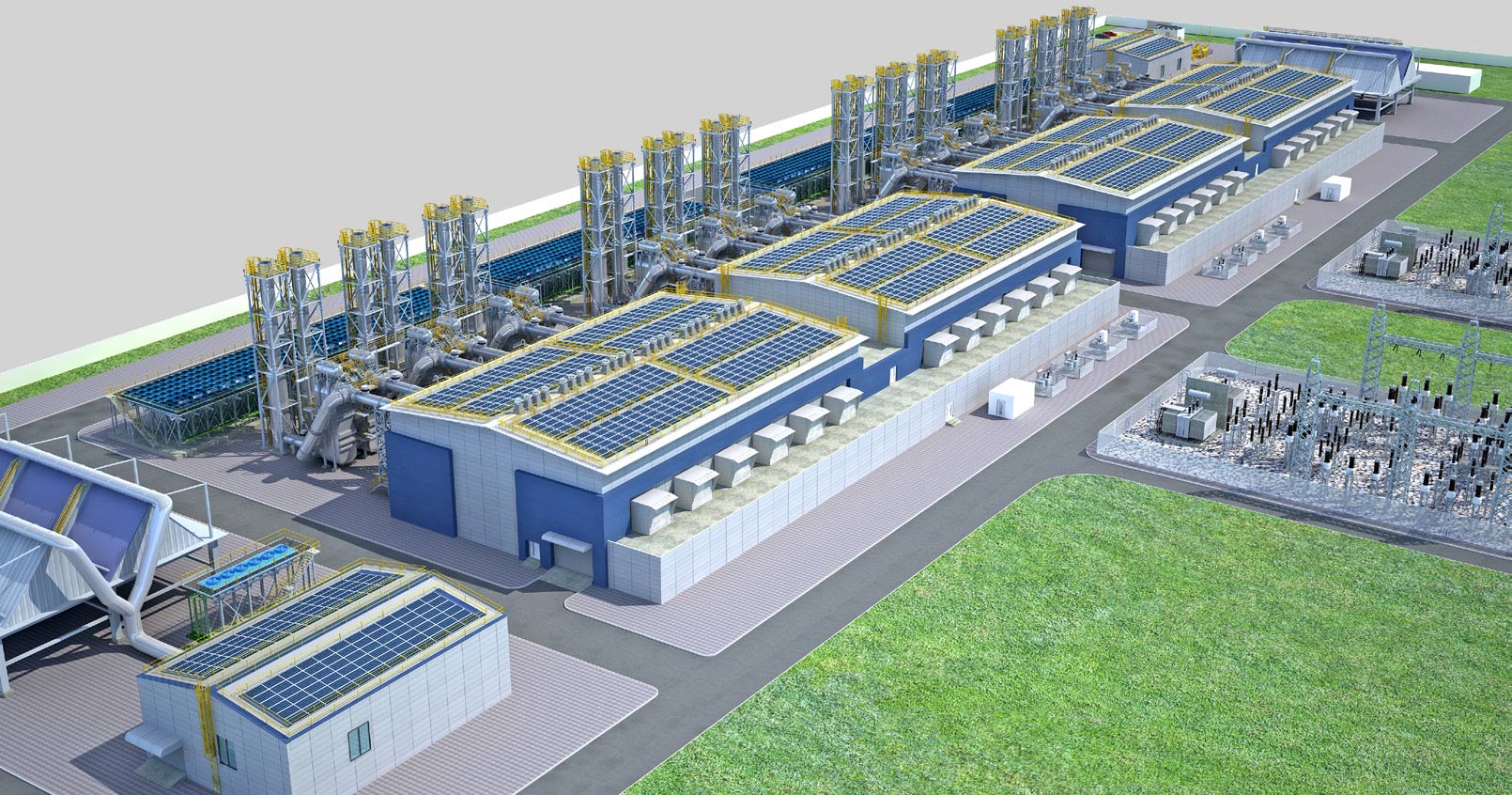
B36:45L
Inline Engine | Natural Gas | 3,360 - 5,285 kW
At the heart of our strategy for a greener future is a focus on hybrid-renewable modular power generation solutions for the rapidly emerging “microgrid” sector.
Typically wind and / or solar renewable power supplies fluctuate dramatically throughout a given period. Battery energy storage can only form part of the solution to provide a reliably constant power supply.

What are microgrids?
Hybrid renewable microgrids are advanced energy systems that combine multiple sources of renewable energy, such as solar panels, wind turbines, and energy storage, within a localized and self-contained microgrid infrastructure. These systems are designed to maximize the use of clean and sustainable energy sources while ensuring reliable power generation and supply. By integrating various renewable resources, hybrid renewable microgrids enhance energy resilience and reduce reliance on conventional fossil fuels.
Hybrid renewable microgrids typically consist of a mix of energy generation technologies that work in tandem to meet the energy demands of a specific area or facility. Solar panels and wind turbines capture energy from sunlight and wind, while energy storage systems, often using batteries, store excess energy for use when renewable generation is low. Advanced control systems manage the balance between generation and demand, optimizing the use of renewable energy and ensuring a continuous power supply. These microgrids can operate both grid-connected and in islanding mode, disconnecting from the main grid during outages, which enhances energy security and minimizes environmental impact by reducing greenhouse gas emissions. Hybrid renewable microgrids are at the forefront of sustainable and resilient energy solutions, offering a pathway toward a greener and more reliable energy future.

What is the benefit of reciprocating engines in a microgrid?
Reciprocating engines, often powered by natural gas or other fuels, can provide several valuable benefits to hybrid renewable microgrids. Firstly, they serve as backup or supplementary power sources, which enhance the reliability and stability of the microgrid. In cases where renewable energy generation (such as solar and wind) fluctuates due to weather conditions, reciprocating engines can step in to fill the energy gap, ensuring a consistent power supply. This backup capability is crucial for critical facilities and industries that require uninterrupted electricity, no matter the weather.
Additionally, reciprocating engines are highly efficient and can be utilized in combined heat and power (CHP) configurations within microgrids. This means that in addition to generating electricity, they can also capture waste heat and use it for heating, cooling, or industrial processes. The integration of CHP technology further increases the overall energy efficiency of the microgrid, reducing energy costs and greenhouse gas emissions. The ability to provide both electricity and thermal energy makes reciprocating engines a versatile and practical choice in hybrid renewable microgrids, supporting sustainability, cost-effectiveness, and energy resilience.
Applications
Hybrid renewable microgrids are well-suited for a variety of applications where the integration of renewable energy sources and enhanced energy resilience is desirable. Some of the applications that benefit most from hybrid renewable microgrids include:



Bergen engines are principally found driving alternators in power generation applications, either singularly or in multiples up to 200MW, with 300MW currently under construction. Our engines and generator sets are widely recognised by operators worldwide due to their proven technology, robust design, and low operating costs.

Bergen engines power generators for offshore oil & gas installations and on board a wide range of ocean-going vessels. Bergen engines can also be found in direct propulsion applications. From tugs and fishing vessels, to ferries, offshore supply and cruise ships, Bergen engines are a watchword for supreme quality and reliability in the marine industry.

Please fill in your contact details below and we’ll reply as soon as we’re able.

Please fill out the enquiry form, and our dedicated team will promptly attend to your request